#marxist poetics
Text
"Among the influential poetry scholars in this period, Charles Altieri comes closest to acknowledging the circumstances by which critics became mute in the face of historical crisis, though he does so, not in discussing critics, but in discussing poetry. In this passage from his powerful 1984 book, Self and Sensibility in Contemporary American Poetry, Altieri reflects on the revolutionary sixties from the vantage point of the Reagan era. In that decade, he writes,
poets felt that intense poetic experience might serve as witness and proof of the power of mind to recover numinous values trampled underfoot by the assumptions of liberal industrial society. Now that the desire to transform society, or even to transform long-standing aspects of American personality, has come to seem to many at best escapist and at worst another of the illusions Americans create to avoid the contradictions in their lives, poets have sought quieter, more distinctly personal and relativistic ways of adjusting to what seem inescapable conditions…
Ours is an age that must come to terms with failed expectations and, worse, the guilt of recognizing why we held such ambitious dreams. (36–37)
This passage is exemplary of the refusal to think about the role of capital in political and literary history, for two reasons. One is that, in trying to dismiss left-wing political aspirations as psychological flaws, and approvingly citing a turn to 'quieter, more distinctly personal and relativistic ways of adjusting to what seem inescapable conditions,' Altieri ends up creating the contradiction he thinks this inward turn avoids—a contradiction between the quietude of the inward personal life, rendered as a retreat, and the force required to keep the world away from it. This contradiction has a psychic expression as well, which is the 'guilt' that Altieri, with heartbreaking candor, says attaches to having dreamed of a better world. That guilt, like the wall around a gated community, blocks further political thinking by punishing the political thinker for having dared to imagine or to work for revolutionary change.
In mentioning this guilt, Altieri touches on a powerful structure of feeling in American political life, one that has always posed problems for the left, which congeals in the idea that it is a betrayal to think against the system—a betrayal against one’s friends, one’s community, one’s art. Distantly behind this idea lies the real material threat against workers who choose to strike—the possibility that striking would threaten their family’s security, or bring down violence on them. Transposed into an academic setting, the idea seems to be that, in developing a critical analysis of capitalism, the critic forsakes daily life, the small beauties; he becomes arrogant, unable to see what’s right in front of his nose; or she becomes preachy, solipsistic, hypnotized by abstractions. If one is a critic of poetry, the too-critical critic loses the ability to perform subtle close readings."
Christopher Nealon, The Matter of Capital
#christopher nealon#the matter of capital#poetry criticism#marxist poetics#marxist literary criticism#charles altieri
4 notes
·
View notes
Text
“To bring arguments from facts or statistics against Mr. Bax’s variegated rhetoric would indeed be to crush with the Nasmyth hammer the gay fluttering wings of a peacock butterfly.”
I am currently OBSESSED with this article written by Annie Besant, a prominent orator and writer of feminist, socialist and educationist theory in the late 19th century. The woman herself is an inspiration, she fought for the independence of India and Ireland, she was an early advocate of birth control, etc. Generally Awesome.
But this is one of her lesser acknowledged pieces of writing, probably because it is so specific.
She writes in response to a very misogynistic article published in a previous issue of the same paper.
Her argument is highly articulate, and intellectual, and brilliantly entertaining.
Still very relevant in all points and references really.
I have found a new hero.
#annie besant#marxist feminism#marxist theory#marxism#socialism#feminism#feminist#chaotic thoughts#chaotic academia#dark academia#poetic#writing
10 notes
·
View notes
Text
shawty got that protestant work ethic and catholic shame combo call that a christ complex
#efficency-maxing culture in a traditional industrial marxist contexts aside this culture preys on the resiliency of the human race#not to enforce a anthrocentic narrative about humaness and endow the language of opression with a sense of poetic authority but like#we’re experiencing the fall out of a grand larceny#one that confronts and reinforces the notion like there’s something essential to us to be lost#the very acknowledgement of what that thing is what provides us not only the innate resiliency of spirit but moreso the mindfulness#to say: “hey my life has meaning#i’m going true monadist lol
6 notes
·
View notes
Text
Mikhail Lifshitz: Marxist Aesthetics and a Critique of Modern Art
What is important to me is to mark the main features of the worldview we are offered as the lodestar of the future art – the renunciation of realistic pictures, which Picasso sees as an empty illusion, that is, deception, and the affirmation of a wilful fiction, designed to spark enthusiasm, that is, the conscious deception of mythmaking. [...] Let’s just say that the main inner goal of such art lies in suppressing the consciousness of the conscious mind. A flight into superstition is the very minimum. Even better is a flight into an unimaginable world. Hence, the constant effort to shatter the mirror of life or at least to make it muddy and unseeing. Any image must now be given qualities of ‘unlikeness’. In the way, pictoriality recedes, eventually becoming something free of any association with real life. [...] Once it was enough to present a few geometrical figures on the canvas to avoid any associations. Now this is too little. The self-defences of consciousness are so refined that even abstract forms are reminiscent of something real. That requires an even greater degree of detachment. Hence, there appears anti-art, Pop Art, which largely consists of the demonstration of real things, enclosed in an invisible frame. In a sense, this is the end of a long evolution from real depictions to the reality of bare facts. It might seem we’ve already achieved that goal: the life of the spirit has ended, the worm of consciousness has been crushed. Still, that is an empty illusion. The ailing spirit’s attempts to jump out of its own skin are senseless and hopeless. When reflection revolves around itself endlessly, it only gives rise to ‘boring infinity’ and an insatiable thirst for the other. [...] Yes, ‘modern art’ is more philosophy than art. It is a philosophy expressing the dominance of power and facts on lucid thinking and poetic contemplation of the world. The brutal demolition of real forms stands for an outburst of blind embittered volition. It is the slave’s revenge, his make-believe liberation from the yoke of necessity, a simple pressure valve. If it were only a pressure valve! There is a fatal connection between the slavish form of protest and oppression itself. According to all the newest aesthetic theories, art’s effect is hypnotic: it traumatises or on the contrary blunts or calms a consciousness that no longer has any life of its own. In short, it is the art of a suggestible crowd at the ready to run after the emperor’s chariot. Why am I Not a Modernist? - Mikhail Lifshitz
Lifshitz's critique of modern art and its "hypnotic effect" targets modernism's romantic heritage and its animating desire for art to redeem what it sees as a fallen world through acts of a sovereign will possessed by a singular genius (hence the reference to the "emperors chariot"). Its no coincidence the notion of the genius is a quintessentially Roman notion that Walter Benjamin found in the works of none other than Goethe that entailed "the patriarchal idea that every culture, including bourgeois culture, could only thrive under the protection of and in the shadow of the absolute state." (Benjamin - Goethe: the Reluctant Bourgeois) Hitler's status as a failed artist, by now such a trite fact as to be included in the encyclopedia that is middle-brow pop historical consciousness, is a testament to the prevalence of this desire for a despot-as-artist that romanticism, among other things, has left in its wake. Fredric Jameson's antidote to the culture of the crowd seeking a new art school Ceasar is “a pedagogical political culture which seeks to endow the individual subject with some new heightened sense of its place in the global system…” (Cultural Logic of Late Capitalism. pg. 54). Lifshitz and Jameson endorse a realism that attempts to allow the masses to understand the world so they may one day change it.
3 notes
·
View notes
Text
like this specific brand of homophobia is hysterically funny to me because they were a group of provocative young men looking to overthrow absolutely everything in the 1920s so everyone called them faggots. and a few of them were indeed faggots and a larger part had no particular problem with homosexuality except that this one guy the sort of leader of the poetic circle absolutely hated gay people like i'm serious a deep irrational hatred he has a full section dedicated to homophobia on his wikipedia page. and so they were really avant-garde about a lot of things except, inexplicably, the violent homophobia. but in the 90s when people were studying them and a few of them were still alive they had to justify his position and so you end up with vaguely marxist old men saying things like no andré breton wasn't homophobic, it's not anything like that, it's just that (unbearably french voice) homosexuality is anti-dialectical
5 notes
·
View notes
Text
Trying to make this short, but simply put, the reason I and other marxists aren't comfortable with the "North Korea is awesome"-vibe some blogs are dissing out isn't because the sentiment is wrong.
Look into half the stories about defectors of NK and mainland China and there's lots of "I'd rather go back home than live in this capitalist nightmare"- and that's BEYOND valid. It is sick, and yes hypocritical, that westerners point and jeer and white savior the shit out North Koreans and Chinese like they're sheeple then just hop right back on their 'capitalism is good'-train like our government isn't a fascist authoritarian pos that we just shrug and go "it could always be worse :D :D "???? Rude. My point isn't that pointing that out is bad. It's that I frankly don't trust western communists/socialists to be doing the talking.
Good intentions or not, I think western commies are ALSO using the North Koreans to make a point, the same way western capitalists are. Maybe you can call it the lesser of two evils but lemme put it like this:
In the Elephant Man, there's an argument to be made that even though he's not beaten and shamed anymore, Joseph Merrick is still being treated like a sideshow freak in the hospital. Think of the regretful NK defectors as Merrick - abused and used for profit by outside capitalists who demand they "pull their weight" and all that other vile shit we say about communist citizens like they aren't even people and victim blame them for their own abuse - to act like you can't also be exploiting them+using them to further your own talking points+weaponizing their pain because your core interest is hating your own country and waxing poetic about how well someone else must have it...well...that's what's gets me mad.
Defectors will talk at length about how they want to go back home to NK but CAN'T because their government will kill them and our world governments won't let them, how their lives were generally better in North Korea but they left because they knew it was abusive and the government did not care about them (or the socialism they spouted) - I think it's its own brand of dehumanizing to hop on these people's lives, as westerners, and be all: "UUuuaaugh but you HAVE to go LeninistMarxist DON'T YOU KNOW our country is evil, actually? Lookit these ppl they had the good life!!!"
tl;dr: I don't trust communist rhetoric+sympathy from people who haven't lived in or under communist countries themselves.
People who hold up those ideals in spite of a country that tried to use that to suppress their rights are iron-willed. Ya'll are talking out your butt and out of (understandable) spite for your own garbage fascist countries. I get it- but please recognize that you're also using ppl's lives for your own gain, even if you mean well.
((inb4 "North Korea isn't communist technically-" yeah yeah I know but they call themselves communist and socialist tumblr puts them in the communist umbrella))
#communism#anarchocommunism#antifascism#north korea#marxist#marxism#western communism#socialist#marxist leninist#marxist theory#westerners
7 notes
·
View notes
Audio
Marxist Love Disco Ensemble - MLDE
Sounding simultaneously from the past, the present, and the future, the debut album 'MLDE' by Marxist Love Disco Ensemble seeks to eradicate both the trite from disco and the sobriety from political music. Half poetic, half tongue-in-cheek, this stunning compact eight-track album is influenced by Eastern European and Mediterranean 70s disco records. In the words of band member Paolo, ''it was written in response to hearing 'I love America' by Patrick Juvet. The song prompted the question: why does disco, a genre originally created by oppressed minorities, eventually become synonymous with Western capitalist excess?" MLDE seeks to break this connection.
Merging disco, post-disco 80s pop, and boogie into the fold, 'MLDE' was recorded using only analogue instruments, giving it warmth and space. Recorded on cassette, ½ inch tape, this gives moments of lo-fi abstraction between the beats of an aggressive, tight drum kit. Instruments used for this recording range from saxophone, trumpet, harpsichord, guitar, and rare analogue synthesisers. The bass sound is shaped by early 80s boogie records, whilst the influence of artists such as Hamlet Minassian can be heard in some of MLDE's more driving-disco outings, such as 'Hues of Red'. In the tradition of Soviet vocal group records, which the band has studied, some songs are sung by a vocal quartet in homage to this tradition.
Tracks such as '1905' and 'Brumaire' have a greater pop aesthetic, with Paolo's vocal style on these more pop-driven songs evoking early 80s bands such as Orange Juice and Chas Jankel.
The format and message of pop and disco are commonly viewed just to entertain and move bodies around a dancefloor; however, lyrically, the subjects range from dialectical and historical materialism, class struggle, Marxist theory and praxis, as well as the concept of Marxist disco music.
Adding the icing to the cake, mastering don Joker aka Liam McLean dusted the album with his magic, giving the songs space where the room is needed, as well as the kick and punch demanded by the modern dancefloor.
10 notes
·
View notes
Text
i dont mean this in like a derogatory sort of way but genuinely why do mls always like sound normal until you start talking about politics and then they turn into a bloodborne character or whatever. like genuinely what is it about being a marxist-leninist that makes you start saying shit like "the shambling undying corpses of our bloated world feeding upon the souls of the new" or whatever
like it's generally very poetic and kind of fun to read but what is the deal with that. you guys make capitalists sound so cool
6 notes
·
View notes
Note
4, 17, 26 for the soft asks!
Hello! ^.^
4. has been already answered here <3
17. What is something you own that is important to you? What makes it so important?
One thing that I have which is particularly dear to me (and I've definitely talked about it before at some stage haha) is a signed copy of Edwige Feuillère's memoir! A friend found it for me online and then I got it (because of course). But what surprised me when it arrived was that the previous owner of it had left clippings of articles about Edwige and Jean Marais inside - perfect condition; it was as if they were cut out yesterday! They even had dates written on them in fountain pen ink telling when they were cut out and when the article was written. I could be wrong but I get an inkling the previous owner of the book was also queer haha :P
But anyway the reason I find it so important (along with all the obvious above) is that it was one of those books I didn't realise was what I needed to read at the time I read it. It was during the first year of lockdown, I was having yet another crisis about what I wanted to do with my life, and idk, reading her words just became a comfort (plus she could be quite poetic when she wanted to be which I LOOOOOOVE in someone and their writing). Reading it became a journey, not just something interesting to read. It was also the first book I forced myself to read in French -- I started with barely having any French; by the time I finished the book, I could read French quite well. I still go back to flick through some pages when I feel I need cheering up or guidance (or reference information regarding experiences during historical events). The way she writes about women is also hilariously gay. And she fangirls for almost two pages about how her favourite female flamenco dancer kissed her backstage once and that entire passage just hit me like a truck when I first read it lmaoooo.
TL;DR: it just has a TON of sentimental value to me and she's kind of a mood and a lowkey-Marxist Nazi-hating bicon who almost accidentally ate her friend's fourtune hidden in the food they brought on a train once so like what isn't there to like
26. Do you usually remember your dreams?
If they're particularly unusual, then yes, I do. If it is true that you dream every single night, then I certainly don't remember all of them when I wake up, but I certainly remember the ones that have been particularly unique. Sometimes I know I have dreamed after waking but cannot remember everything. Or I do remember, but because it wasn't anything worth remembering in the long run, I forget them eventually.
Thank you for asking!! <3
simple & soft asks. send me a number!
#i am so sorry for writing an abridged essay for Q17 lmaooooooo#if you read all that i'm giving you a medal fam#that goes for anyone who made it through all that#gayvillainera#asked and answered#simple & soft asks
3 notes
·
View notes
Text
On the Interpretation of an Annotated Version of Lacan's Schema R
The Lozenge of the Mathème for Fantasy (1):
The Vel in the Lozenge

The diamond-shaped lozenge character/symbol found in Lacan's mathème for fantasy is clearly not the same thing as schema R or a semiosic square. This is partially because the lozenge's characteristic ability is to elide participating in either a symbolization or a semiosic square, because these are structures that intrinsically incorporate an arrangement of four given terms into two distinct contraries. The lozenge, on the other hand, while it does possess for itself two contraries, just like a semiosic square has, it also only (apparently) supports two terms, not four. So, while the ultimate agenda is to integrate the Oedipal+preOedipal+Real (S+I+R) quadrangle (schema R) into what Lacan refers to as the vel in his eleventh seminar, they are not genuinely the same structure. The annotations would have the vel moving from E to M on schema R by way of the object of privation x, the symbolic father P, and the ideal-ego I(A). This is not what is going on with a lozenge at all. So, there is either a dialectical progression required to reach the point where a lozenge-structure can modify the schema R so that a direct vel movement is possible whenever signification may occur, or these speculations and suspicions turn out to be incorrect, and the lozenge-structure should be kept separate from any quadrangular semiosic schemas for the rest of human history.
In any case, here is the (my) annotated version:
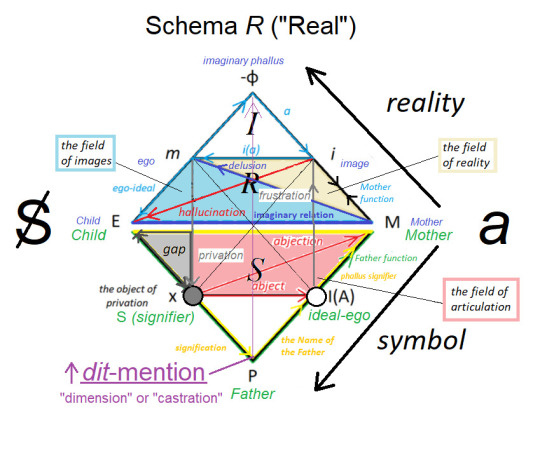
The Lozenge of the Mathème for Fantasy (2):
The Hegelian Lure, and the “Master-Servant Dialectic” in the Oedipal Square/Schema R
In an article titled “Hegel’s Master-Slave Dialectic and a Myth of Marxology”, written by Chris Arthur, and published in the New Left Review for their November-December 1983 issue (this is an article that I read online a few years ago that profoundly influenced me), there was a discussion on the appropriation of Hegel's philosophy by both Karl Marx himself versus the French Marxists of the 20th century, the latter citing Alexandre Kojève as their primary influence: figures such as Jean-Paul Sartre, Jean Hyppolite, and Hérbert Marcuse.
At stake was the definition and use of the French word aliénation in French Marxist philosophy, since it could be translated for two different words in German, words which were used by the philosophers Georg Wilhelm Friedrich Hegel and Karl Marx. These two words were, namely, Entäußerung (“en-toy-sare-oong”, alienation) and Entfremdung (“ent-frem-doong”; estrangement, or alienation), respectively.
Hegel's Entäusserung was used more in reference to a spiritual (pertaining to Spirit) or essential (pertaining to essence) connotation of the meaning of the word "alienation", whereas the word Entfremdung connoted through "estrangement”, for Marx more specifically, something maybe closer to the English word "separation", i.e., the proletariat's alienation from the product of his/her/their labor, indicating that the worker has the product of his labor taken away from him once he is finished making it. This is because it is intended, by the capitalist who owns the business, to be sold to someone else (obviously). Marx's point in developing this idea of alienation wasn't exactly that the finished product ought to belong to the worker instead (as I once foolishly misunderstood to a large degree), but rather that the financial math involved in capitalist business operations ends up cheating the worker of a full compensation for what he/she/they did to produce wealth for their employer that day. Alienation, in Marxian economics, thereby implemented a more spiritual or abstract register of Hegel's philosophy in this manner, which it always only ever was; mostly, this was in the context of Marx's polemic against a sort of poetic injustice at the societal level, and not a serious call for any violent destruction of the established order.
But wait… Is Marx ever really talking about political economy itself when he writes about the workers who are forced to participate in it, (that is, if they want food to eat and a place to sleep)? Was his writing just an example of literary self-stylization through polemic? Or is labor itself not truly productive, but rather something fundamentally cognitive and philosophical by means of the historical mechanisms internal to thought itself? And why is it important that French intellectuals of the 20th century were claiming that these connections now established between Marx and Hegel ought to be attributed to the teachings of Alexandre Kojève, instead of getting de-bunked altogether?
This tendency in French Marxism, broadly speaking, and according to Chris Arthur, is significant because Alexandre Kojève is practically the father of French existentialism, French psychoanalysis, French political philosophy, and 20th century French Marxism; the study of any philosophy of history or Heidegger's ontology in France, as well, could never do without his influence either. As a result, even French president Emmanuel Macron can be presumed to have a familiarity with the prestige of the French Hegelian tradition. Alexandre Kojève was a profound influence on Jacques Lacan as well, serving as Lacan's "master-signifier". He really is the most influential thinker, teacher, and politician of all time, even though he is not by any means the most essential one.

However, this confusion about so-called "alienation" persisted in Western European philosophy for quite a long time as a result of his teaching. But… what if Kojève had anticipated, prior to the consequences of this confusion about "alienation", what he was doing with the eventual historical effects of his teaching? His calculated dissemination of Hegel’s and Marx’s philosophical wisdom is rather Christ-like for that reason. (But I'll discuss this way further down in the post.)
Back to main topic: The vel in Jacques Lacan's diamond-shaped lozenge is located at the bottom-half of the lozenge. This part of it, a V-shaped movement from left to right, is also referred to by Lacan as "the Hegelian lure". Why?
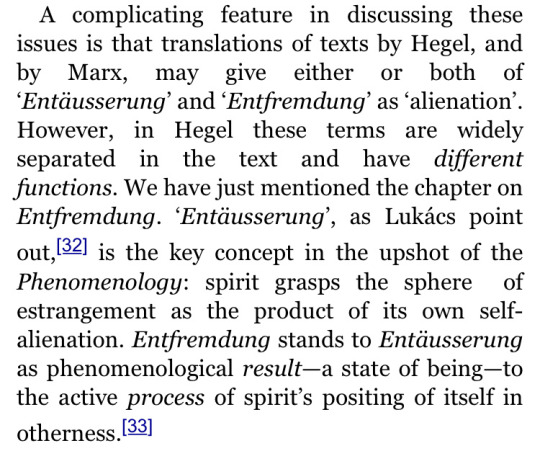
So, the Hegelian lure is… what?
“Spirit grasps the sphere of estrangement as the product of its own self-alienation.” This is the essential thrust of fantasy in general, even though it is an activity that remains largely unconscious. And that very fact is because of its interactions with what is non-conscious.
This interplay which constitutes the
thrust of fantasy is between:
[1] the formations of the unconscious,
[2] unconscious mechanisms (e.g. natural metaphor), and
[3] non-conscious, or undiscovered, scientific/factual knowledge.
This thrust of fantasy, then, is a conglomerate formation facing towards Hegel's idea of Absolute Knowing. There is a gap between the present-day, or present-moment, and the final end of knowledge itself, which marks the location of a present-moment's abstract finish-line. This situation bears stark similarities to Kant's antinomies of Pure Reason, but as Hegel famously criticizes, Kant's idea of the concept is too flimsy, because a concept is something which ought to be grasped properly if it is to be the attainment of the thing itself. In this vein, what I personally like to think of as the noumenal justice of imaginational (visual) logic relies too heavily on the metaphysical escapability of the Kantian thing-in-itself. This innate slipperiness, which generally characterizes Kant's understanding of objects, avoids Hegel's notion of Absolute Knowing for the most part, deferring instead to its respectively absent uncaused cause, rather than making itself graspable by way of self-knowing.
The relationship to knowledge on the part of the Lacanian (or psychoanalytic) subject is one which must necessarily pass through the dialectics of need, demand, and desire in order to be capable of "producing" a signifying chain. This is distinctly marked by the appearance of a', which shows up on the Schema L. (You can find a pretty good explanation of that here, although I would like to take a closer look at it and emphasize the emergence of this a' as the very condition to which desire itself is subjected.)
In any case, this conception of "desire itself" as something subjected to the a' is analogous to a thematic element of the mathème for fantasy found in Chris Arthur's exposition of the philosophical relationship between Marx and Hegel. So, what does Marx say, potentially pertaining to fantasy, and alluding to Hegel, according to Chris Arthur?

(“Bildungsroman”, according to Oxford Languages/Google Search Engine, is “a novel dealing with one person's formative years or spiritual education.”)
“Abstract mental labor” as the “labor of spirit” is the final objective of fantasy in general, and this is what Lacan's mathème expresses. On the annotated version of Schema R, however, there is a part of the vel (if this schema is indeed mimicking the lozenge) which is a gap in both figurative and literal space, there to denote how the dialectic of desire must play out before a linear process of signification may ever occur in the first place. To get to this abstract mental labor, then, reality must become an object, one which is both ordered and organized by the trapezoid-symbolizations which are the projective surfaces of psychoses: poiesis/delusion, genesis/hallucination, and sinthome/elision. This is what the convoluted-looking annotation basically signifies.
The Lozenge of the Mathème for Fantasy (3):
The Gap between the Split-Subject and the Object of Privation

The split-subject is produced by a variable stimulus Δ interacting with the variables S and S’, illustrated above on Graph I of the graph of desire, which is also known as the “button-tie” or “quilting-point” (point de capiton). This interaction between the variables is called metonymic sliding (glissement), or slippage. Two vertices of the pre-Oedipal triangle (i and m) may then interact with this metonymic slippage in tandem with its already-produced product, the split-subject, $. To re-iterate the basics, the Other, A, is a destination at which the subject never arrives, however (it is a place that exists, but not a space where one may be). Rather, the approach is one of anticipation for what Lacan repeatedly called “the treasure trove of signifiers”, the Other, which I mistook (for a long time) for a lexicon. Looking at the schema for poiesis will show, however, that there is also the sonic resonance of the imaginary phallus, -φ, which vibrates all around the image of the object i(a), objet petit a.
Poiesis here is the failure of frustration to relate to castration in a way that germinates the very possibility of fantasy. The subject’s approach to a relationship with demand is knocked off course by a metonymic slippage which flees from the Other in the form of the Voice, and this consequent alienation causes the subject to “fall under” the phallic function of the mother's beyond (Jouissance → Castration) and land at the locus of the signified of the Other. It does not reach the upper level of the complete graph of desire because it was not launched up by desire, d, with enough thrust. This is Hegel and Marx’s Entfremdung, which was described above. The estrangement of spirit finds its home in self-alienation, and picks up the Signifier as the substitution for its lost relationship to desire. This is a properly-constituted instance of cognition, which in addition to the signified also picks up more of -φ’s sonic resonances on the way down to I(A), and arms itself with the ego (m, “le moi”). The ideal-ego, I(A), is a space where one may arrive at occasionally, but the resonances of the imaginary phallus which are functionally reflected (reflection here functions as a metaphor for re-semiotization, since the vectors $→A and s(A)→I(A) are not moving in the same direction) in i(a) continuously interfere with the apperception of any final tension. This is to say that the graph of desire is best understood as a structure that is constantly pulsing with the colorful, multiplicitous vibrations of plucked strings.

Poiesis corresponds to the elementary cell, Graph II of the graph of desire, as a projective surface of psychosis, the one which fosters the (psychotic) structure of delusion. It is something that you peel off of it, like a sticker, or an article of clothing, a cloak for a desire-device whose existence would have otherwise gone undetected. But what it also uncovered for us above was the falling-under of the subject to a place below the phallic function at the signified of the Other s(A), which is a place both added to and subtracted from by the sonic resonances of the imaginary phallus in an Icarus-like enactment of Entfremdung.
What emerges for the subject from this falling-under, in conjunction with both poietic uncovering and Entfremdung, is the object of privation, which I denote as x. This kind of object is of a symbolic lack. But this observation of the poietic uncovering of a desire-device (Graph II of the graph of desire) as the foundation for the approach to phenomenological method is both schematically and architectonically deceptive. However, The relationship between the subject and the object of privation is certainly an exceptional one, and poiesis may approach this object from the greatest distance possible, as a trapezoidal-symbolization, and as a projective surface without a symbolic object. The aforementioned deception of this approach lies in how the other two trapezoidal-symbolizations have identical capacities to uncover similar dimensional objects for the subject (i.e., objects of frustration and castration), therefore, they are neither objectively nor metaphysically outranked by the primal cloak of poiesis.
Beginning with poiesis makes the exposition of the gap between $ and x less difficult to explain, though. This is because for the cloak, or projective surface, of sinthome, the object of privation moves right into the place of the signified of the Other once the dialectic of demand has recapitulated, whereat the subject may readily collect it (x) upon the occurrence of its Entfremdung after having fallen under the phallic function; the subject then may bring it (x) back to where it formerly just was, to the space of the ideal-ego.
This process of re-linking the signified of the Other to the ideal-ego without interference from the resonances of the imaginary phallus by means of the object of privation is called the abject. Counter-resonances from the symbolic father at P on the Oedipal square vibrate in tandem with the momentum of the ego (m), causing elisions of the resonances of the imaginary phallus by de-longitudinalizing its sound waves, sending them off in a transverse direction. If sound waves are always physically longitudinal, and this fact is in tandem with the imaginary phallus because these waves may only follow the law, then the sound waves which resonate from P are longitudinal as well, because they may only stop the law from being followed. The relationship between P and m is an odd one that can therefore only be uncovered by putting on the cloak of sinthome. The unconscious mechanism at work in this cloak of sinthome placed over Graph II is reification. The subject may get sucked over to the left side of the graph by the resonances of P in tandem with m, and identify directly with x in such a way that the ideal-ego and the subject take on a relationship to one another similar to that of the abject. This close-knit triangulation leaves the Other in a state of being held at the greatest possible distance, however; this is to the extent that the real father must have some rugged object for its substitute within the treasure-trove of signifiers (A). In this way, as a distracting ploy to the subject, it is also the key to the lock, which allows for the object of privation to invade the subject’s rightful place.
The final cloak, then, is the cloak of genesis, whereby the subject substitutes itself for the object of privation directly in order to displace itself, and pre-configures the left side of Graph II as wholly imaginary. Thereby, the subject may be returned to the Father most purely at I(A), and the signified may also be returned rightfully to the treasure-trove of the Other at A, both of these functions occurring mutually without disturbing one another. This is also the foundation for the projective surface of hallucination, however, a sort of antagonistic undoing of the phenomenology that the cloaks, up until now, gave a semblance of.

In conclusion, the gap (béance) between the split-subject and the object of privation is a three-sided relationship between two terms: E-x, E’-x, and $-x. This is illustrated by the button-tie, Graph I, and results in the formation of a lozenge-structure. You can also find it on the symbolic (lower) triangle of the annotated schema R, adjacent to E. Thus, the lozenge is derived from a semiosic square, that of schema R, after all, rather than the synchrony and diachrony at odds with one another which merely form a semblance of the real through their empty resonance. (Whether or not this is ontological or metaphysical is decidedly beyond the scope of the topic.)
Alexandre Kojève and Jacques Lacan's Christ-Like Riddle for Human History
So: back to the speculation about Alexandre Kojève, and his Christ-like plan for the fate of our species’ philosophical institutions: did he intentionally plant seeds which might give the answer to the Lacanian problematic of the “Hegelian lure”, and furthermore in advance of the completion of the psychoanalytic sphere (in 20th century France)? The labor which is grasped as the “essence of man” that Marx alluded to, and which Kojève emphasized in his lecture, is clearly a philosophical labor, and not a materially productive labor. This kind of labor is ultimately far more time-consuming, and the relation of the mathème for fantasy to schema R is one of philosophical (maybe Kantian?) transcendence. The mathème itself represents what our human species may finally aspire to, if it finds the capacity, the excellence, and the strength to do so. And this process is fundamentally historical, by a (Kantian) form of necessity.
The Christ-like riddle for human history mentioned earlier, then, is about the ambiguity and the eternal struggle happening between [a.] the master-signifier, S1 and [b.] the Name(s) of the Father, S(A), both of which serve a master's discourse, and function to prohibit the mother as a fundamental consequence of language-acquisition (schema L). What is so Christ-like about it is that this dual antagonism appears to have been left behind by the two men, Kojève and Lacan, very intentionally. Even though Chris Arthur seemingly criticizes the French intellectuals in his article, those who make false claims because they are too broad about the link between Marx and Hegel according to Kojève, Arthur doesn't seem completely indignant about it if he is also undoubtedly aware of Lacanian psychoanalysis. He expertly enacts the cyclical process of the rotations of the four discourses in a way that doesn't escape one's attention. He is a very cerebral and witty guy, in this regard.
— (5/10/2022)
#lacanian psychoanalysis#drawings#philosophy#philosphy of history#politics#french hegelianism#Emmanuel Macron#French philosophy#Karl Marx#Hegel#Jacques Lacan#alexandre kojeve
9 notes
·
View notes
Text
having to do a fair bit of reading on modernism for class, and it is astonishing the lengths these writers are going to in order to do apologia for and write off the bigotry of the artists they’re praising. the artists’ works remain relevant for over a century (in contrast with “contemporary artists”), while their racism and colonialism and misogyny are dismissed as “misguided political actions.” these critics wax poetic about how modernism isn’t truly reactionary like all those damn marxists think it is, then immediately fall into reactionary thinking themselves - a “thus of old” versus “thus of now” thinking, where the art of the past is Good and Eternal, and the art of the present is, if not Bad, then Lacking. i’m not going to write off the whole movement yet, because i don’t know enough, but i am more than suspicious of the individual artists and the critics who praise them. if a movement was built by and centered around people with absolutely repulsive beliefs, is there perhaps a chance that the movement itself was influenced by those beliefs?
#art doesn't exist in a vacuum. art movements don't exist in vacuums.#matt speaks#if there are any modernism scholars in the audience i apologize if i'm off-base at all. maybe my prof is just giving us bad articles. idk#this is just what i'm getting out of the things i have to read.
5 notes
·
View notes
Photo

In case you’re unlucky enough to be following this shit solely through my little blog, I’ll post this testimony from Yarvin too. But the tossed-off reference to Yvor Winters as beau ideal—critic-as-artist!—might be the most telling element. I assume Edmund Wilson is named for convention’s sake, the first literary critical name that occurs to one, his ideological significance—his Marxist-to-libertarian journey, from the Finland Station, as it were—more or less nugatory. Winters is the punctum. For context, see here:
In one corner we have [Hart] Crane, a devotee of the imagination and its “delirium of jewels,” a seeker of “new thresholds, new anatomies,” a Modern Romantic who strove to refresh the poet's kinship to the shaman and the seer. In the other corner, Winters, a decrier of unreason, a skeptic of poetic ecstasy and rapture, a moralist who dismissed visionary individualism as potentially dangerous fakery. Poets today probably know who they would have rooted for.
Or do they? Certainly Crane is the more widely admired figure now, in part because the difficulty that his work posed to its first audience has been softened by decades of celebration and study. Yet many of those who would like to imagine themselves cheering valiantly for Cleveland’s Whitmanian rebel regularly accuse their contemporaries of the very deficiencies and extravagances Winters derided in Crane. Winters still has his advocates, of course, including many who don't realize that that’s what they are.
This is a false choice, by the way; I choose both and neither. The initial seeing is shamanic, visionary, irrational, but the immanent disposition of the transcendence seen hardly inimical to reason. True art synthesizes all these philosophers’ and polemicists’ weary antinomies—and rises above the modern left-right struggle, too, as Homer rose above the warring parties on the plain of Troy.
#curtis yarvin#mike crumplar#yvor winters#hart crane#literary criticism#literary theory#the new conservatism
2 notes
·
View notes
Text
🪦ℑ𝔫𝔱𝔯𝔬𝔡𝔲𝔠𝔱𝔦𝔬𝔫🧟♂️
Greetings and Salutations welcome to my page.
The name is Locke/Bugs [He/Him/It/It's] expect nothing but violently autistic reposts, kinky shit and whatever other nonsense I have going on and decide to put on here.
Here's some fun shit about me 👽
★Queer, AroAce and a relationship anarchist to my core
★My Tboy swag is unparalleled
★Autism/Adhd/BPD all that jazz
★Some shade of spirituality, religious about my wife though
★AnarchoCommunist Revolutionary Scum.
★Emo loser
Most recent interests!
TF2 | V for Vendetta (comic) | X-Men | My Chemical Romance | The true lives of the fabulous killjoys | Warhammer 40k | Resident Evil 8 | DnD | Deltarune | Religion as a poetic device | Judaism | Philosophy | Leftist/Marxist Theory | | Bugs | Creatures | Insects if you will | Oh and as always poetry
↓↓↓
My Poetry Stash https://www.tumblr.com/blog/bleeding-poet
DO NOT INTERACT: HOMOPHOBES, TRANSPHOBES/TERFS, RACISTS, XENOPHOBES, ZIONISTS, ABELISTS, EUGENICISTS, Etc...
3 notes
·
View notes
Text
“So, these days I make a distinction, a rather playful (but insisting) distinction between left-liberal poetics and communist poetics… I’m feeling a deep paucity of the latter. North American contemporary poetics is dominated by accommodationist left-liberal practices that are all too happy to lapse into prefabbed spaces of neutered micro “resistances.” Me-me poetry. To the hilt.”
Rodrigo Toscano
“Part of a good Marxist/materialist education is that it allows anyone (writer, worker, student whoever) to denaturalize ideology and to start thinking beyond the “me,” or at least to think “what makes me me.””
Sandra Simonds
2 notes
·
View notes
Text
#003: MUSE - TOP 10 BOOKS OF 2023
I just started this blog so I'd better fill you in on something: I set a goal to read 100 books by the end of this year. Right now I'm at 101, and I still have about a week left before we wrap up the year. First thing next year I start grad school, which is not something I want to do but I have to due to a promotion at work. so I will not have nearly enough time to read 100 more books. So I'll probably set a goal of 20 or something for next year.
This list has 2 books from the following categories in the following order: graphic novel, biography, theory, poetry, and fiction. These books range from powerful to incredibly sad to just plain strange. TWs included in the description.
Anyway, here are my Top 10 books that I read in 2023 in no particular order!
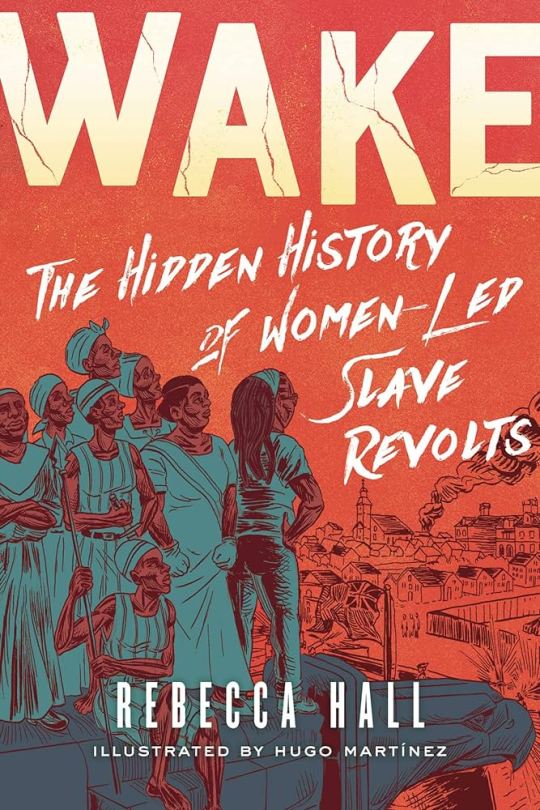
Wake: The Hidden History of Women-Led Slave Revolts by Rebecca Hall / Hugo Martínez
Beginning the list with a graphic novel, this book tells an incredible story. It provides a visual depiction of what the Trans-Atlantic slave trade actually looked like. It describes the story of the authors journey to find the truth about her ancestors' past. It is as dark and haunting as it is illuminating. Rebecca Hall is a hero for writing this graphic novel. TW for depictions of anti-Black violence, slavery, and lynching.
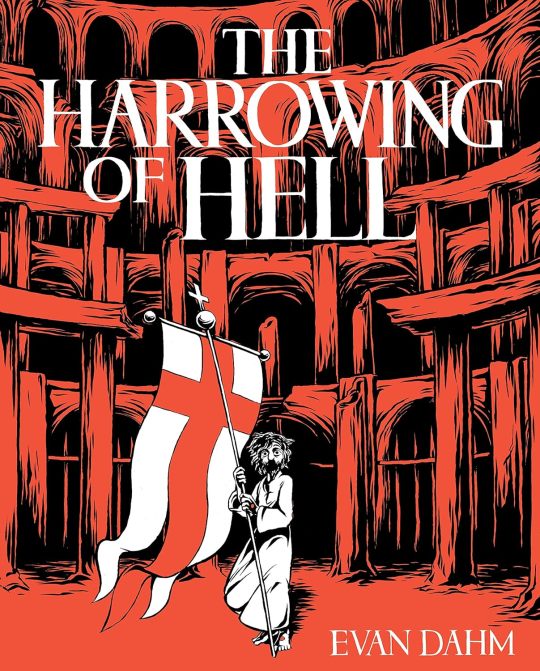
2. The Harrowing of Hell by Evan Dahm (@evandahm)
Another graphic novel, this is a very intriguing rendition of Jesus' descent into hell. Its a subject that's only been mentioned in passing when I would attend church. To see it depicted in this very vivid art style is a very awakening experience. Although the art and sparse dialogue can be a bit abstract at times, overall the work is really solid and the liberating message comes across well in the end.
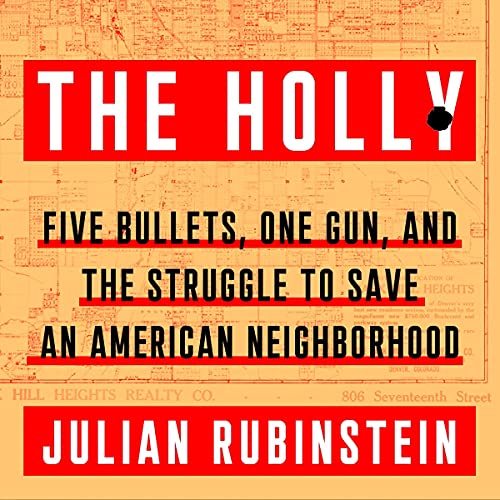
3. The Holly: Five Bullets, One Gun, and the Struggle to Save an American Neighborhood by Julian Rubinstein
The most incredible thing about this book is that it is a true story years in the making. Anyone who lives in Denver or is invested in social justice must make time to read this very important chronicle of anti-gang and anti-police activists in Denver. I don't want to say too much about this book, but please do check it out. Also, I read this book as an audiobook—it is narrated by the author and contains original audio taken from archival footage of the events that take place in this book. TW for descriptions of violence, including anti-Black violence and police brutality.

4. Joan of Arc: A Life Transfigured by Kathryn Harrison
I read this book for research I was doing into a poetic project that I may or may not complete one day. The author does a great job explaining in great detail the particular reasoning behind Joan's decision making and how her story fits into a messianic narrative utilizing the wealth of biographical information about Joan of Arc's life. The audiobook narrator, Cassandra Campbell, also does a decent job with the French names and terms. TW for descriptions of sexual assault and war.

5. Constructive Criticism: A Handbook by Vicki Legion
Written about 50 years ago, this book still contains practical advice crucial for organizers to struggle with each other and come to correct conclusions. Vicki does a great job explaining how our emotions develop in a dialectical way, demystifying communication issues between comrades. Activists, organizers and everyday people alike should read this book to learn how to communicate better. I'm re-reading it right now and I'm still learning upon the second read!

6. Strategy for the Liberation of Palestine by the Popular Front for the Liberation of Palestine
We better talk about this book while it's still legal to do so! The PFLP released this text in 1969 (?) to elucidate the Palestinian and global masses of the conditions Marxist-Leninists face in organizing for a revolution within occupied Palestine. The information contained in this book is dated, written before the Intifadas and the formation and consolidation of Hamas, but the dialectical materialist methods of analysis are still crucial to understanding present-day conditions.
**You can get both this book and Constructive Criticism from Foreign Languages Press as a free PDF/audiobook or a cheap paperback.**

7. Short Film Starring My Beloved's Red Bronco: poems by K. Iver
This book fucked me up for real. This is a short yet devastating collection of poems detailing the loss of their childhood friend and lover. The speaker of these poems conveys the relationship between these two young people as one of mutual self-discovery, as both of them were trans and were having to learn to process this truth on their own. It's incredibly well-written and still sits with me months after reading. I borrowed it from the library but I may have to pick up a copy to keep on my shelf! TW for suicide and transphobia.
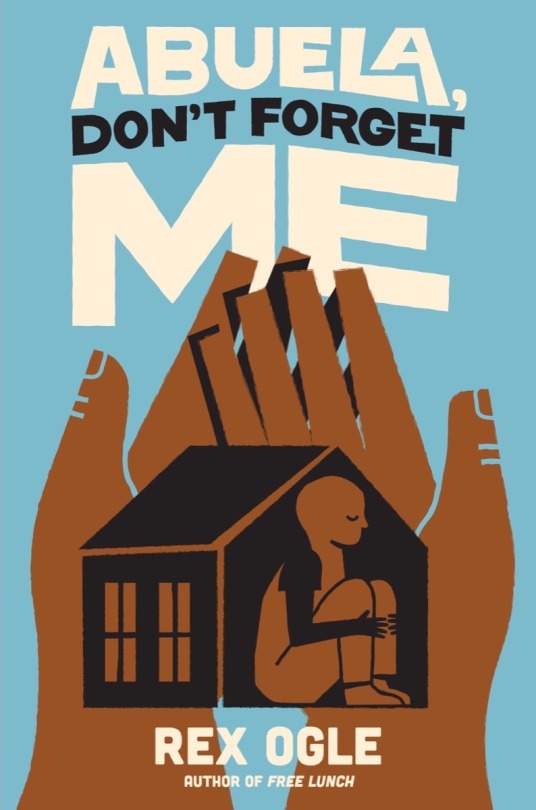
8. Abuela, Don't Forget Me by Rex Ogle
I guess the poetry this year fucked me up for real in general. If you're familiar with Rex Ogle's other works like Free Lunch or Punching Bag, you're already somewhat familiar with the main character. This is a sort of memoir-in-verse that tells the story of Ogle's relationship with her grandmother, his only safe adult caregiver whom he could trust. He was prompted to write the poems in this book when his grandmother was diagnosed with dementia. The poems are so simple yet impactful, great for young readers. TW for domestic abuse and neglect, and casual anti-Latino and xenophobic racism.

9. Mandíbula (Jawbone) by Mónica Ojeda
Rounding off the list with some fiction...and this was probably the weirdest book I read all year. I read the book in Spanish, which may have had something to do with it, but even so, the story of a bunch of high school girls at a preppy high school in Ecuador who are really into creepypastas and doing occult internet shit to torture each other was surprisingly well-written. The character development is also pretty strong between the two main girls of the group and the neurotic teacher whom they torture the most. If you were into really weird, fucked-up creepypastas as a teen, you might like this one. This book has also been translated to English under the title Jawbone. TW for abuse and kidnapping.
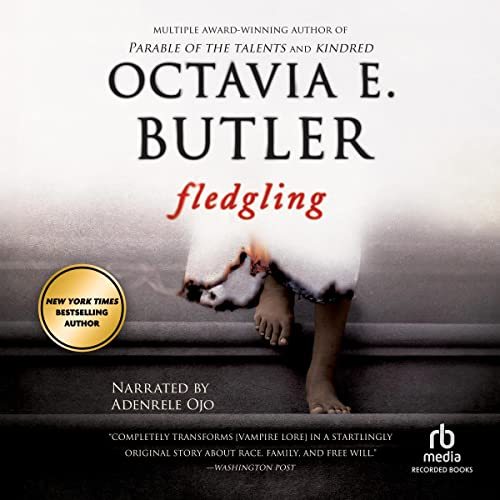
10. Fledgling by Octavia E. Butler
Finishing with easily one of the strangest books I've ever read, period. This book tells the story of a vampire-like creature who wakes up in a cave and doesn't remember who she is. The story that unfolds is harrowing and confusing for the main character, but Butler does a good job of making sure the reader can keep track of the myriad of characters that the main character comes to encounter. I also read Octavia E. Butler's other standalone novel Kindred for the first time this year, but I wanted to highlight this one for how odd this story is and the risks that Butler takes with this book. I need to write an essay on Octavia Butler soon; there's so much to talk about with her novels. TW for genocide, racism, and war-like violence.
1 note
·
View note
Text
Florida
Yes, I am still working on poetic exercises based on the anthology of Romantic poetry. I went through a chapter themed on protest and politics—the Romantic movement coincided with Abolitionism and the French Revolution. Grant you, I’ve already written multiple exercises on sociopolitical themes out of a sense of necessity. For this exercise, I decided to yet again use internal rhyme across lines, and I thought of structuring lines and stanzas to give the sense of sarcastic quips and satiric punchlines. Over the course of working on this exercise, I realized how much can be said with only so many words. The violently sarcastic tone that I aimed for seems to do so much heavy lifting, so I decided against writing more than I have here.
We welcome the absolute rulers of Florida!
We dare not dispute their laws!
Anyone who dissents is a dictator!
Arrest the Marxists and send them alone to the swamps!
Black voices are fully heard!
Nobody attacks sexual minorities!
Libraries operate freely!
Those who claim the contrary are giant corporations!
Ignore the Nazis marching with flags!
Nazis exist in Ukraine only!
Tsarist Russia is an ally!
Florida bravely resists cosmopolitan overlords!
White Christian empires bring
About a bright and happy world!
Do you yet understand the intent
Behind the strand of words which I spoke to you now?
#us politics#american politics#poetry#verse#florida#fascism#ron desantis#ron defascist#republican party#florida republicans#democracy#social justice#satire#sarcasm#poem#original poetry#original poem#poetry on tumblr#poems on tumblr#poets on tumblr#politics
1 note
·
View note